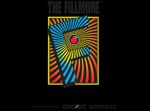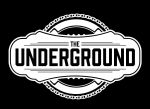Rob Zombie’s The Lunar Injection Relishes in The Past, Present, and Future of Rock

Rob Zombie isn’t trying to prove he’s a rock and roll genius and neither is John 5. With The Lunar Injection though, they both go a long way towards doing so.
Rob Zombie’s entire recording career has always skirted the edge of kitsch without slipping down the very slope it perilously danced upon. This was no accident. Zombie was well aware of the silliness he flirted with, and that made his music the furthest thing from kitsch. This fact is oxymoronic, but it’s also true. From his early “hellbilly” moniker to his recent encyclopedic album titles, Zombie has continually expanded upon his nascent love for all things rock and horror. He’s often done this while winking at his audience, desiring to inspire a frighteningly fun time with his music rather than a scary one.
Zombie’s latest release, The Lunar Injection Kool Aid Eclipse Conspiracy, is loaded with the same type of horror film dialogue samples, grunge-come-metal riffs, and Saturday afternoon creature feature lyrics that his first solo album, Hellbilly Deluxe, was. One would think that the formula would have worn itself out over the past twenty two and a half years, but through sheer force of will, and a wicked sense of fun and nostalgia, Zombie has continually found ways to remain fresh sounding and (dare I say it) relevant.
A significant contributor to Zombie’s freshness of sound is his long term collaboration with guitarist John 5. The former Marilyn Manson guitarist has sounded more at home with Zombie’s less angry, but no less heavy, groove than he ever did with Manson. The many different genres of guitar playing now heard on a Rob Zombie album is undoubtedly the influence of John 5. Rob Zombie’s band, as a recording and performing unit, hasn’t surrendered to John 5 as the controlling creative force though. Rather, to reference another group whose sound was taken to the next level by a new guitarist, John 5 is to Rob Zombie as John Fruciante was (and hopefully will be again) to the Red Hot Chili Peppers. The addition of John 5’s style of guitar playing perfectly compliments Zombie’s style of songwriting.
Getting back to that kitsch/not kitsch thing though, there are very few, if any, artists who can convincingly get away with incorporating recorded vinyl hiss at the opening of a song and not come across as sounding completely, well, kitschy-especially with the current popularity of vinyl records and the ensuing hipster fog that shrouds it. Dropping faux vinyl hiss is exactly what Zombie does to introduce the album. The opening of “The Triumph of King Freak (A Crypt of Preservation and Superstition)” features vinyl sound effects complete with needle drop, pop, and hiss. It’s both kitsch and hommage. Undoubtedly, Zombie’s new album will be snatched up by vinyl aficionados and they will get to experience a self-referential sample of vinyl record sound effects while listening to real time vinyl record sound effects as their album spins on their turntables. I won’t lie; I will be one of those aficionados. Talk about Zombie winking at his audience. Going even further with his double knock on and homage to vinyl as a foundational format, he samples the phrase “The demons hate me” over and over at the start of the song as if it’s a repeating vinyl scratch playback. Zombie doesn’t allow the drawbacks of scratched vinyl to linger in his listeners’ ear for long though as in the middle of the song he indulges in some brilliantly incorporated, and purposeful, hip hop type vinyl scratching. A quick dip into some 70’s style funk, a la John 5, and “King Freak” manages to acknowledge, have fun with, yet consummately amalgamate decades’ worth of love towards rock, hip hop, funk, and vinyl into one of the most interesting sounding recordings of his career.
And that’s all in the album’s lead track and single. Other standout tracks include the swanky “Boom-Boom-Boom” which is sure to become a staple at clubs that nightly showcase American made music to strip by. “Boom, Boom, Boom/The witch is in the room/Boom Boom Boom/She’s sliding up the broom.” Tell me what other rock artist recording right now can get away with lyrics like that and still be taken seriously as a recording artist? “18th Century Cannibals, Excitable Morlocks and a One-Way Ticket on the Ghost Train” which completely skirts the rules of grammar (no Oxford comma in the title) and history (one must assume that the “18th Century cannibals” referred to don’t have much to do with the 19th Century sounding guitar hoe-down that permeates the song), yet manages to allow John 5 to demonstrate his guitar prowess, bouncing from bluegrass-like riffs to crushing grunge metal chords from one second to another without missing a single note. “The Ballad of Sleazy Rider” sprinkles references to early rock and roll with its lyrics “Rama-lama/Rama-lama-Loo,” which is just about as silly, and relevant, as “Rama-lama-ding-dong.” Vocables such as these have their American roots in jazz, were adopted by rock and roll in the 1950s, and are now being paid tribute to through their use by Zombie in a song written in the 2020s. Zombie’s use of vocables here demonstrates just one instance of his appreciation for those upon whose shoulders he, and all of contemporary music, stands.
Zombie doesn’t just look back on his influences though. The Lunar Injection is peppered with short, experimental fragments of songs that indulge Zombie and John 5’s outside the lines creativity. The snippets are cinematic in sound, meaning that they feel like they would be at home on a film soundtrack. This is no surprise as John 5 scored Zombie’s brilliant The Lords of Salem (2002) film, which was just one of the many films Zombie has made and scored himself over the last few decades. The album’s opening intro “The Exploding Head of Zed,” and “A Brief Static Hum and Then The Radio Blared” in particular feel like they could have been, with slight development, complete songs, but instead serve as cinematic mood setting pieces that compliment the album’s proper songs. All of these little pauses in between the album’s fully developed tracks hint at cutting edge technological music, which in turn hints at the ever present and evolving future of rock, and Zombie’s acknowledgement of it.
Rob Zombie isn’t out to prove what a rock genius he is and neither is John 5. With The Lunar Injection, they both go a long way towards doing so though. Their amalgamation of the past, the present, and the future of rock music creates a unique listening experience that is both familiar and fresh. Most importantly, the music remains fun. Those aforementioned creature features might have had a few cheap scares in them, but they were often more fun than they were scary. Zombie continues to offer the same kind of fun and thrills. Often the smartest, and the most interesting, of artists find a way to do many things at once in their art. Rob Zombie continues to deserve to be considered one of them.





























